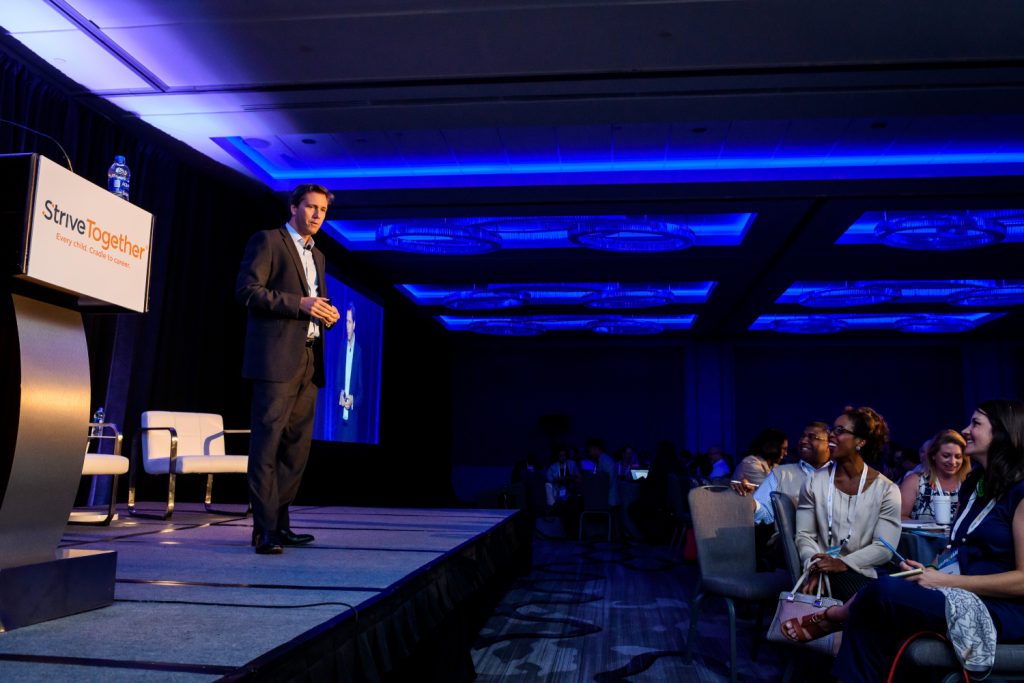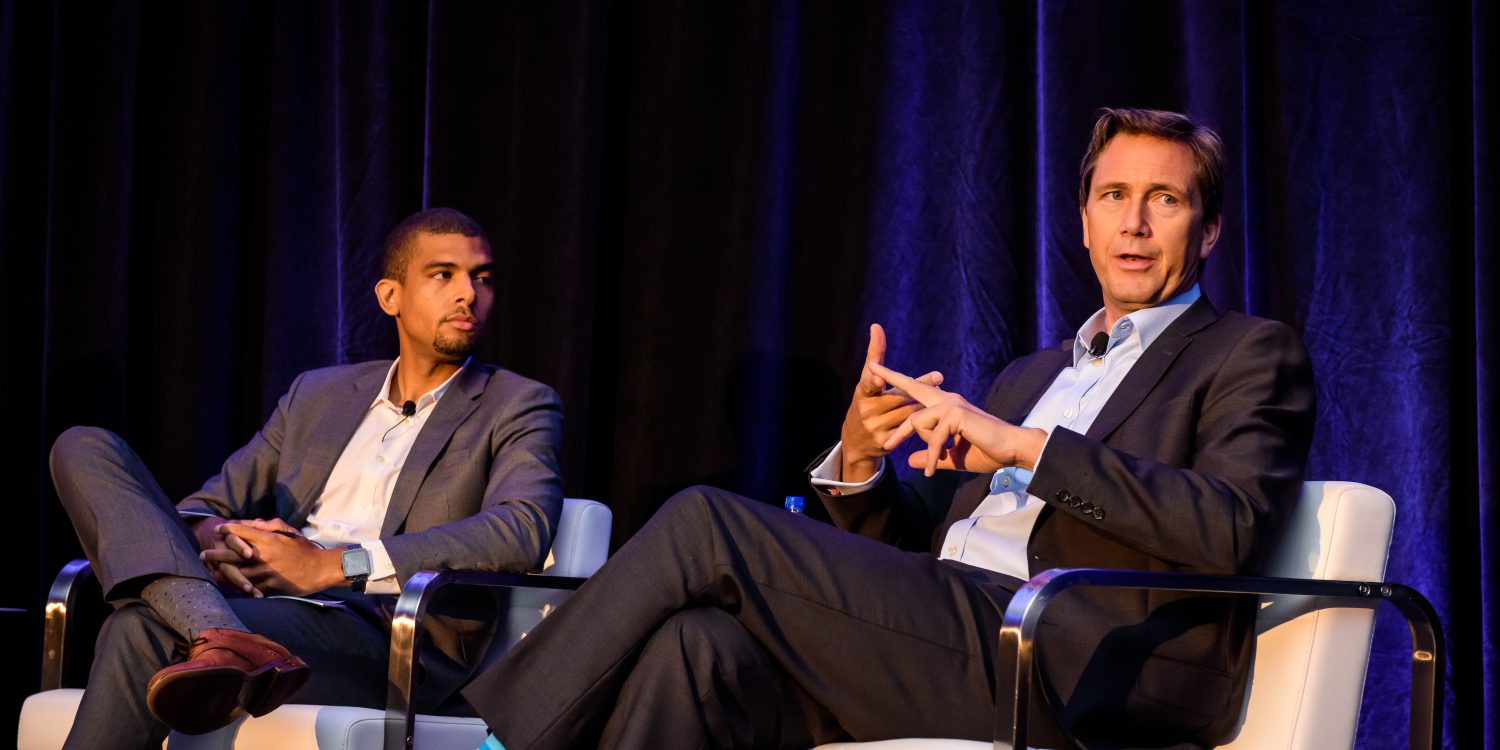How do you define success? If you’ve been following #SuccessTogether, you’ve heard from young people all over the country sharing their definitions of success. A loving family, a nice home, supporting myself and others. These are some of the goals we’ve heard from the 13.7 million children, 8.6 million of whom are children of color, in StriveTogether Cradle to Career Network communities.
Hearing all of these individual aspirations begs an important question: How do we know if we’re making progress as a system, as a society, in ensuring the success of every child toward economic mobility? At the opening plenary of the Cradle to Career Network Convening, network members heard from two experts on the state of opportunity in America: Richard Reeves, senior fellow at the Brookings Institution, and David Williams, policy director at Opportunity Insights.
Here are a few highlights from their conversation:
“The myth of meritocracy”
Reeves shared a stark perspective on the class system in the U.S. and, as he described it, “the myth of meritocracy.” This myth camouflages the structural inequities of our economic system. As Reeves described the “ruthless machine” of the American class system that produces economic inequity across our country, I was reminded of the idea that there is no such thing as a broken system — all systems are perfectly designed to produce the outcomes they achieve.

Race and place matter.
If you’re black and were born into bottom 20% of the economic ladder, you have a 50% chance of staying there, while white Americans born into same quintile are half as likely to stay. In addition to race, as many of us have suspected, place matters, too. Reeves described this as “the Baltimore effect,” explaining that if you grew up in Baltimore, controlling for all other factors possible, you’re likely to earn 15% less over your lifetime than the average American. This impact is even more pronounced for boys.
Data from Raj Chetty and Opportunity Insights shows the impact of the place where you grow up. While this insight represents a huge shift in social science, we still don’t understand the “what” or “why” of how place affects outcomes. I believe Cradle to Career Network members are ready to dig into the data and answer these questions for their own communities.
Investigate the factors specific to the neighborhoods that have provided opportunity in your community. What are the challenges and what have been the bright spots in those neighborhoods?
Disrupting education inequality
Reeves highlighted that education inequality is passed on even more strongly than wealth. Standardized tests like the SAT are often used to perpetuate these inequities over generations. We as a network have an opportunity to identify equitable system measures — like equitable funding flows, diversity of the educator workforce and more — to measure not only child-level outcomes but system performance to address disrupt this accrual of privilege over time.
Our work must involve elevating the human capital in the education and economic mobility space and ensuring that talent is representative of the communities we seek to serve. Watch how Cradle to Career Network members Generation Next and Milwaukee Succeeds are collaborating with partners to take on this challenge:
Measuring effective solutions
Put simply, there is NO correlation between employment growth and economic mobility. In fact, in places like Charlotte, N.C., economic growth is actually exacerbating mobility challenges. You simply can’t count on job growth to drive economic mobility.
So, what does work? One proven solution is supporting and expanding integrated early childhood systems that include evidence-based home visitation support. Learn how Cradle to Career Network member Norwalk ACTS is supporting this effort:
So, what does this mean for the work of our movement?
Put eloquently by David Williams, “StriveTogether partnerships are uniquely positioned to build the political will to operationalize these research insights into action.”
Here are some ways we can work toward sharing the American Dream:
- Define your success metrics very clearly.
- Start with the evidence. What promotes mobility at different stages of the cradle-to- career continuum?
- Measure and evaluate progress so you can make informed adjustments and improve over time.
- Engage with housing partners to improve housing opportunities, which impact many other factors.
- Use the Opportunity Insights’ Opportunity Atlas to dig into the data in YOUR community and target your work to local issues for those marginalized by systems and structures.
We, as a movement, have an opportunity to measure and demonstrate what works for kids and families. Across the country, people are eager for solutions, and we can provide them.






